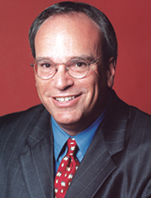
introducing readers to writers since 1995
July 08, 2005
Author2Author: Tom Morris and Kevin Guilfoile, pt. 4
by Ron HoganThanks again to Tom and Kevin for sharing their thoughts with us this week. Next Tuesday, another conversation begin as novelists Adam Langer and Andrew Winston compare notes on Chicago.
 Tom Morris: I've come to think that Cast of Shadows is an ideal example of a certain way of doing philosophy. It's an exciting page turner, with surprises and interesting plot twists galore, but it also has a deeper texture. It's much more substantive than many other very good thrillers out there, and it attains its depth without losing any of its surface excitement. It's really chock full of philosophical ideas, without being in the least pedantic. But of course, as the philosopher Wittgenstein discovered, some things are better shown than said. How did you become such an astute philosopher? And have you experienced any tension between the philosophical side of your own thinking and the demands of writing a good novel? Do these otherwise diverse sensibilities ever conflict or do they feed each other? I've been told that Bertrand Russell once sat down to write a poem, put on paper the word, "Whereas," stared at it a very long time, deep in thought, and then just gave up.
Tom Morris: I've come to think that Cast of Shadows is an ideal example of a certain way of doing philosophy. It's an exciting page turner, with surprises and interesting plot twists galore, but it also has a deeper texture. It's much more substantive than many other very good thrillers out there, and it attains its depth without losing any of its surface excitement. It's really chock full of philosophical ideas, without being in the least pedantic. But of course, as the philosopher Wittgenstein discovered, some things are better shown than said. How did you become such an astute philosopher? And have you experienced any tension between the philosophical side of your own thinking and the demands of writing a good novel? Do these otherwise diverse sensibilities ever conflict or do they feed each other? I've been told that Bertrand Russell once sat down to write a poem, put on paper the word, "Whereas," stared at it a very long time, deep in thought, and then just gave up.
Kevin Guilfoile: Thanks so much for the kind words, Tom. Unlike Justin in Cast of Shadows (a philosopher practically out of the womb), I suppose I first became interested in philosophy reading Woody Allen stories in high school. I started looking up guys like Wittgenstein only so I could get the jokes. There's no question that my experience at Notre Dame was a tremendous influence, beginning with your intro class freshman year (which I don't think I ever missed, by the way, despite the fact that it met Mondays at 8 AM). There were a lot of professors in that department, you foremost among them, who went to great lengths to make philosophy relevant, which is a difficult task considering the abbreviated menu of things 18-year-olds consider important. I remember a class where we read Dostoevsky and Camus, but we also watched Robocop and Blade Runner and Godard's Breathless and we wrote papers about the Silver Surfer (a character Superheroes and Philosophy revisits, to my delight). The idea that philosophy wasn't an archeological dig but that these enduring questions were still vitally important (and were ones I came in contact with every day) was a revelation to me. I took every philosophy class I could fit into my schedule and today I look at everything--politics, art, science, entertainment, friendship--through the philosophical lenses you and others made for me in college.
So it's natural that my writing passes through that prism as well. The challenge as a novelist, I think, is to identify the places where the story intersects with these ideas and to weld those parts deftly, so it doesn't feel like you are manipulating one to get to the other.
I've had a terrific time meeting readers at signings and at book club meetings. At most of these gatherings I ask which character they think is the hero of the book and I think I've received, to this point, four different and intelligent answers (I have my own opinion, by the way, but it's only an opinion). What I've found is that people who read Cast of Shadows as a thriller have one idea, people who read it as a mystery have another, people who think it's a scientific cautionary tale have another, and folks who read it on a philosophical level have yet another. I read so many books in which you're told from the start whom to root for and in the end your support is rewarded when every decision made by that character is completely redeemed. It's like getting a tip on a fixed horse race. I didn't want to tell people how to think or how to feel about the characters or the story; I wanted the reader to have to make those decisions for herself. At every stage of writing and editing the novel, I was told that this was risky, and to have so many readers tell me that they like the book precisely because it asks them to think for themselves has been the most gratifying thing.
your PayPal donation
can contribute towards its ongoing publication.